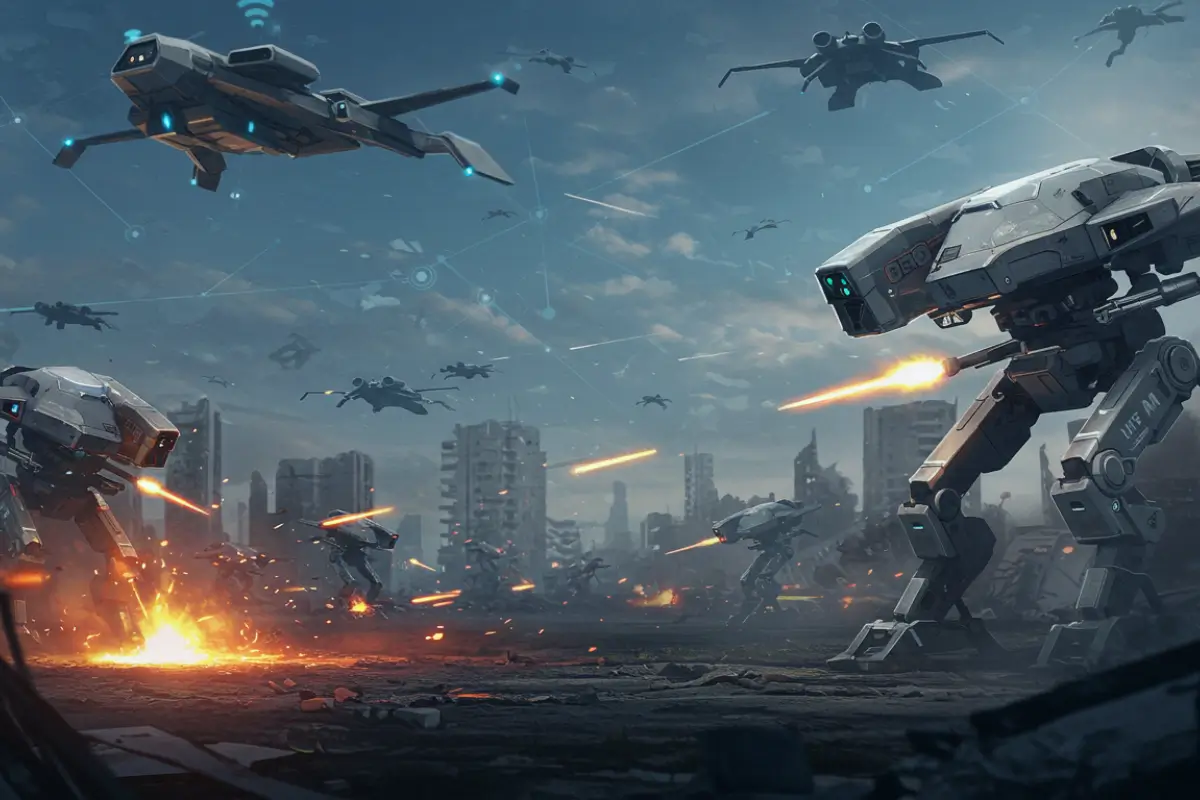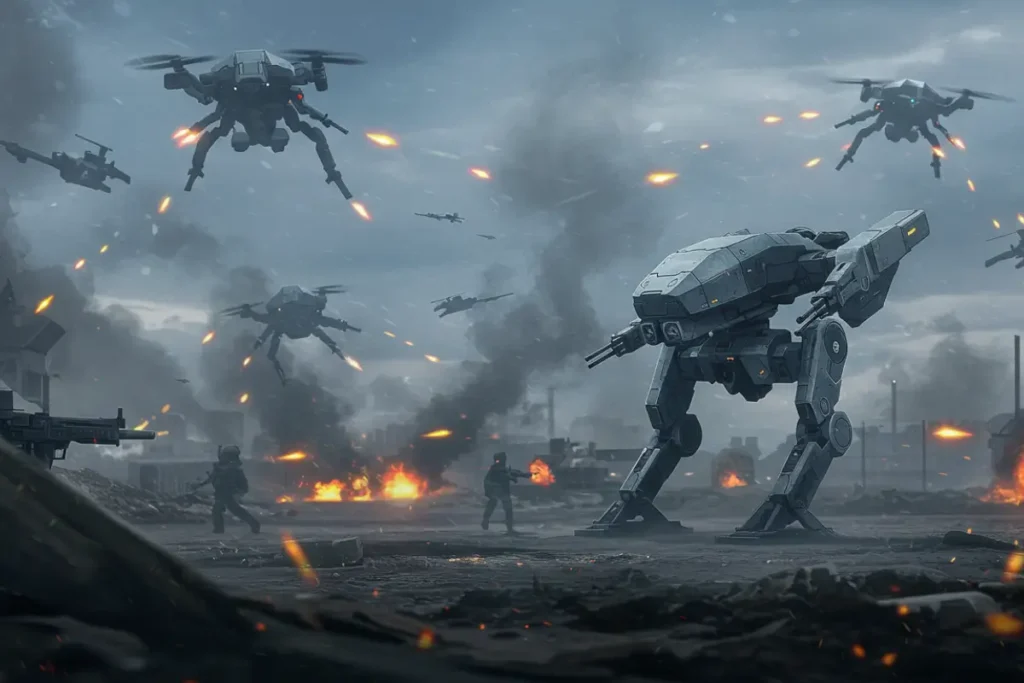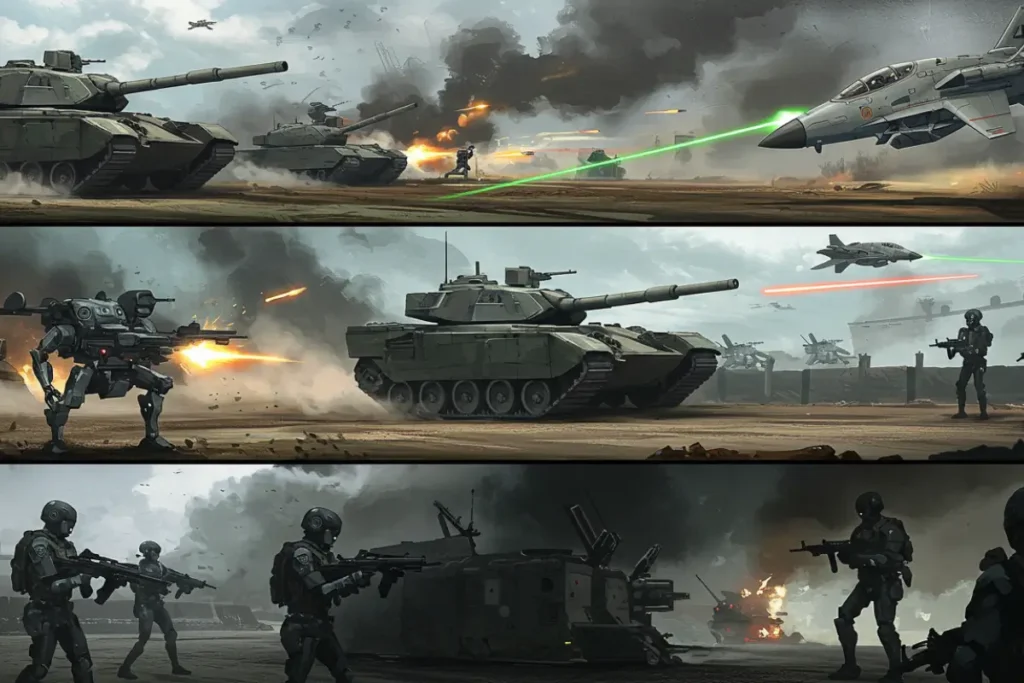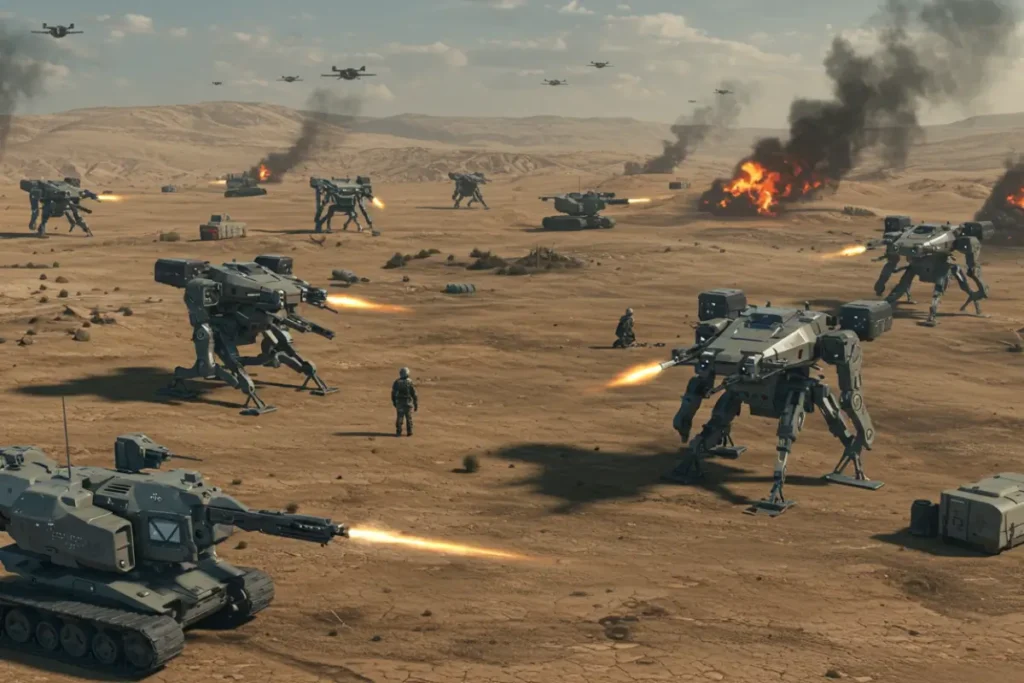AI in Future Military Conflicts – Autonomous War Machines
- June 6, 2025
- 0
So, how do you understand the future of warfare? As someone deeply immersed in the world of technology and gaming, I can’t help but be fascinated—and a bit
So, how do you understand the future of warfare? As someone deeply immersed in the world of technology and gaming, I can’t help but be fascinated—and a bit

So, how do you understand the future of warfare? As someone deeply immersed in the world of technology and gaming, I can’t help but be fascinated—and a bit concerned—about how artificial intelligence (AI) is reshaping the battlefield.
The integration of AI into military operations isn’t just a concept from science fiction; it’s happening now, and it’s transforming how wars are fought.
In recent years, we’ve witnessed a significant shift in military strategies, with AI taking center stage. Countries are investing heavily in developing autonomous systems that can operate without direct human intervention.
These systems range from drones capable of precision strikes to ground robots that can navigate complex terrains.
One striking example is Ukraine’s use of AI-driven drones in its conflict with Russia.
These drones, some costing as little as the price of a smartphone, have demonstrated the potential of AI in leveling the playing field, allowing smaller nations to challenge more formidable adversaries.

AI’s role in modern warfare extends beyond just autonomous vehicles. Here’s how it’s enhancing military operations:
These applications not only increase efficiency but also reduce the risk to human soldiers by taking over some of the most dangerous tasks on the battlefield.
While the advantages are clear, the deployment of AI in warfare raises several ethical and strategic concerns:
It’s crucial for international bodies and governments to establish clear guidelines and regulations to address these concerns.

The integration of AI into military operations has sparked a global race among nations to achieve technological superiority:
This competition underscores the strategic importance of AI in future conflicts and the need for international cooperation to prevent an arms race.
| Country | Focus Areas | Notable Projects |
|---|---|---|
| USA | Autonomous drones, AI logistics, cybersecurity | Project Maven, Joint AI Center |
| China | Surveillance, drone swarms, AI strategy | AI National Team, military-civil fusion |
| Russia | Electronic warfare, autonomous vehicles | Uran-9 combat robot, AI in electronic warfare |

As AI continues to evolve, its role in military operations will likely expand. We might see:
It’s an exciting yet daunting prospect, and it’s essential for policymakers, technologists, and the public to engage in discussions about the future of AI in warfare.
For those interested in exploring this topic further, here are some resources:
I’m curious to hear your thoughts. Do you believe AI will make warfare more efficient or more dangerous? Share your opinions in the comments below.
Let’s discuss the implications of this technological shift together.
If you found this article insightful, don’t forget to share it with your friends and colleagues. For more articles on the intersection of technology and society, visit Futuristic Intellect.